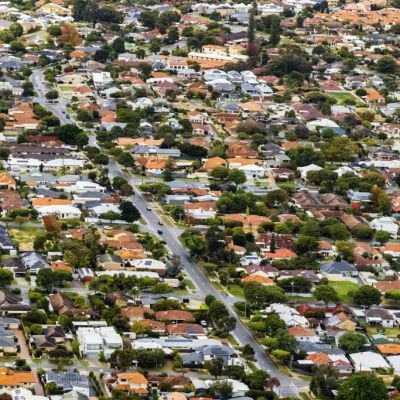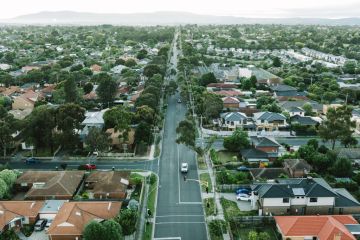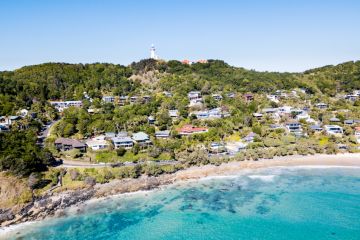Second ‘upper tier’ property boom expected in Perth
The current property boom in Perth is posting a huge dividend for homeowners with prices increasing the collective wealth of owners by more than $143 billion over the past financial year.
Limnios managing director James Limnios said that figure was very conservative, based on the 850,000 Perth private dwellings identified in the 2021 Census, which would have increased in number during the past three years.
“This huge increase is laying the basis for a second locally driven property boom once interest rates start to fall as predicted during 2025,” he said.
“Over the past year, the Perth property market has benefited from eastern states investors flooding the local property market and pushing up property values, especially in lower priced suburbs.
“The lower priced suburbs such as Armadale have recorded some of the highest capital growth rate figures in Australia with an annual capital increase of nearly 40 per cent over the past year.”
Limnios predicted from 2025 onwards, local upgraders in the Perth property market will have a major impact on property values as they now have the increased equity to purchase more expensive homes.
“As a result, we should see much stronger price rises broadly across middle to upper priced properties in Perth that have not benefited from the eastern states invasion as much compared to lower priced homes over the past year,” he said.
“Perth property prices will rise even further when interest rates fall because wages in WA are the highest in Australia and falling interest rates will increase the borrowing capacity of local buyers.
“Pressure on Perth property prices will also continue because the supply of homes will continue to remain critically low and new housing construction is not matching population growth.
“This should see a major uplift in apartment prices over the next year which are already on the rise.”
While some eastern states commentators have predicted that the Perth real estate market has peaked, Limnios Property Group predicts even more capital growth for Perth over the coming years.
Perth’s median house price is on track to achieve growth of more than 20 per cent over 2024, according to REIWA’s latest property market quarterly update.
REIWA chief executive Cath Hart said if the market continued on the current trajectory, Perth’s median house sale price could reach $740,000 by the end of 2024.
“Demand remains strong, houses continue to sell in record time and prices keep rising,” she said.
“Currently, Perth’s median house price at the end of June was $668,000, already 11.3 per cent higher than at the end of December 2023 and 22.6 per cent higher than the previous peak of $545,000 set in 2014.”
Hart said the median unit sale price was also expected to hit a record in the coming quarter as the market continued to be driven by strong population growth and constraints in the building industry.
“WA recorded 3.3 per cent population growth in the year to December, which included about 79,000 net arrivals through overseas and interstate migration,” she said.
“That’s about twice the population of Baldivis, which significantly boosts the demand for housing.”
Real Estate Buyers Agents Association of Australia President Melinda Jennison said that despite cost of living challenges, the new stage three tax cuts were expected to boost disposable incomes and borrowing capacities for many households, potentially increasing housing demand and strengthening prices further.
Jennison said Perth remained a city with extremely tight supply, with total listings down 22.6 per cent compared to last year and well below the five-year average.
“Meanwhile, sales volumes have increased by 7.7 per cent year-on-year. Median days on market has also shortened, with a current median timeframe of just 10 days to sell a property, forcing buyers to act quickly to avoid missing out,” she said.
Oxford Economics Australia senior economist Maree Kilroy said the latest ABS private house building approvals fell 0.5 per cent to 9,078, with Western Australia (-5.1 per cent) leading the decline.
“We expect positive momentum to gain in 2025 with the pass-through of interest rate cuts and policy support at both the federal and state government levels,” she said.
“This improvement will be slow-going as entrenched trade labour shortages place an impactful speed limit on the early-stage recovery.”
Research director, Tim Lawless, said available supply is a key factor explaining the diverse outcomes in housing growth trends.
“The number of homes for sale in Brisbane, Adelaide and Perth is more than 30 per cent below average for this time of the year, while weaker markets like Melbourne and Hobart are recording advertised supply well above average levels,” he said.
We recommend
States
Capital Cities
Capital Cities - Rentals
Popular Areas
Allhomes
More










